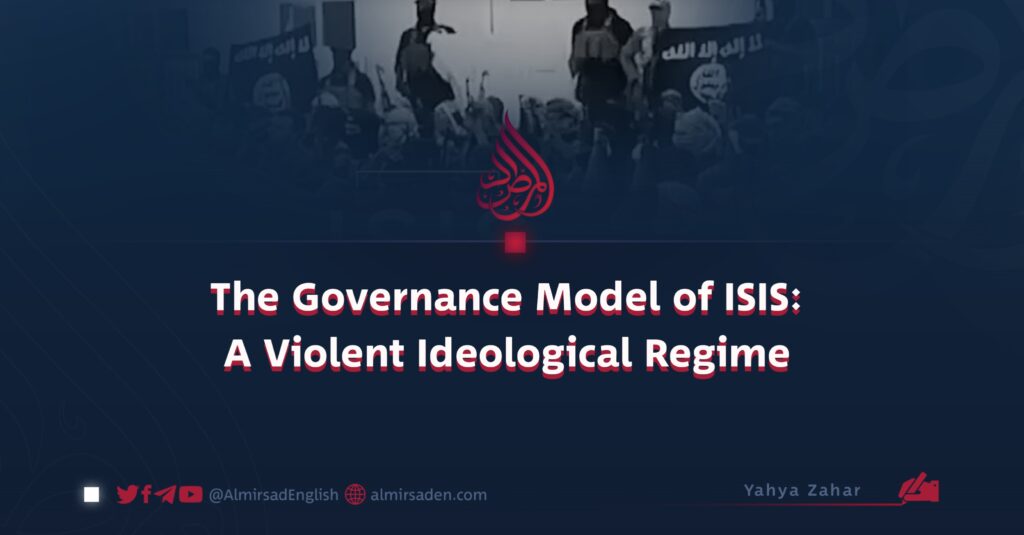Author: Yahya Zahar
ISIS is an extremist and radical movement that emerged in Iraq in 2013 under the leadership of Abu Bakr al-Baghdadi. The group holds a unique, hardline, and violent perspective on government formation. They aim to establish governance in the regions they control under the guise of “complete Islam,” a system of governance that is not aligned with the true essence of Islam.
ISIS enforces Islamic rulings based exclusively on their rigid and extreme interpretations. They maintain the belief that the caliph of a Muslim state should wield absolute authority, rejecting public consultation in governance, which they equate to democracy, a form of governance they oppose.
The group aims to institute a government where stringent Sharia laws are imposed on individuals’ lives. This includes executing opponents, protecting their self-proclaimed caliphate, and advancing ISIS ideologies.
ISIS regards the removal of borders and artificial lines as a key element of its governance. They aspire to establish a vast state under the facade of a “United Islamic Caliphate,” deceiving Muslims to further their political goals. However, this agenda also poses a threat to the stability of other Muslim nations.
ISIS endeavors to establish a state that perpetuates conflict, utilizes force, and instills fear in order to achieve its objectives. The foundation of ISIS’s governance is rooted in conflict and the coercive enforcement of their ideology. They maintain that all Muslims globally are obligated to uphold their caliphate and safeguard it.
The economic system of ISIS’s governance, as they claim, is based on Islamic economic principles. In practice, however, most of their revenues come from illegal sources, such as oil smuggling, extortion, and looting. In the realm of education, ISIS enforces a curriculum that prioritizes their extremist ideologies and the teaching of combat skills, while downplaying the significance of modern science and technology.
The governance of ISIS is built on religious bigotry and takfiri ideology. ISIS considers its interpretation of Islam to be the only valid one and labels all Muslims who disagree with them as disbelievers. They view their opponents as apostates and justify their killing.
In the territories under their control in Iraq, ISIS’s governance was characterized by severe oppression and coercion. They exploited the natural resources of those regions, controlled the production and sale of oil and other commodities, imposed heavy taxes on the populace, and extorted significant sums of money from traders.
Furthermore, ISIS’s rule was enforced through fear. They carried out brutal acts publicly and disseminated them through the media to instill fear and demonstrate their authority.
In conclusion, ISIS’s governance contradicts the fundamental principles and values of Islam. The majority of Islamic scholars and Muslims strongly condemn its ideology and actions, deeming them detrimental to Islam.
